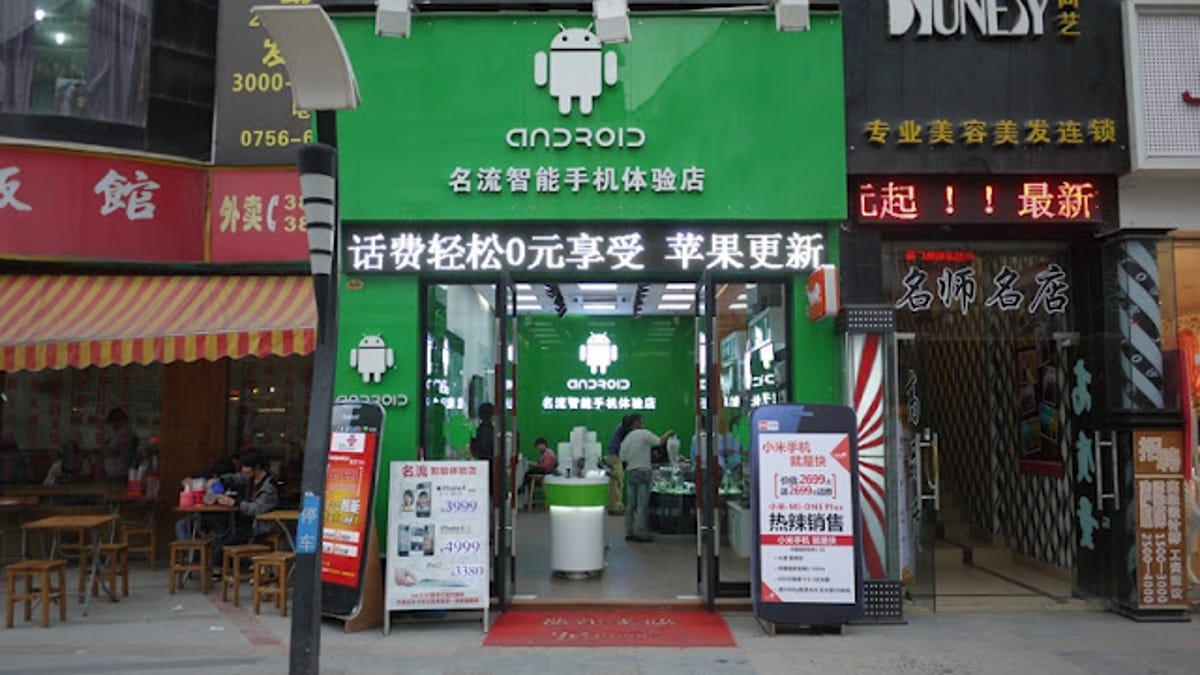Are 'fake' Apple and Android stores in China really fake?
Are the branded stores just knock-off retail outlets, or a form of marketing that's misunderstood?

Last year, a China-based blogger shared photos from an apparently unauthorized Apple Store in China, and last month another posted pics from a seemingly confused "Android store" that was also selling Apple products. But upon further investigation, what seems shady at first might just be a case of marketing lost in translation.
When I saw expat and independent blogger Brian Glucroft's photo of the Android store in China's Guangdong province, I contacted him and asked if he'd mind sharing a few more details. I was mostly curious if other brands like BlackBerry and Windows Phone could be found in these retail oddities, and if the phones on offer seemed to be legit. What resulted was a full-blown investigation into the phenomenon of these "fake stores."
First, he returned to the Android store and found that in addition to plenty of Android phones, iPhones, and iPads, there were also some Windows Phone models available. Glucroft reports -- he detailed his return visit in a follow-up post -- that all the devices appeared to be what they claimed to be rather than a cheap copycat or knock-off of some sort.
Most amusing are his observations about the HTC case inside the store, which:
...included brands such as BBK, Huawei, Motorola, Nokia, Samsung, and Sony Ericsson. Oh, there was one HTC phone too.
But that HTC case also hints at a difference in the way brands and logos are commonly used in China. When a Chinese retailer puts a giant Android or Apple logo on a storefront where we'd normally look for the name of the store, the business owner could really be saying, "This is the product we sell that we're most excited about -- or think you're most excited about -- but it's just part of our abundant selection."
Whether Apple or Google would be cool with this use of their trademarks is another story, but the point is that the case of the iPhone-selling Android store isn't that unusual in China. To illustrate the point, Glucroft visited a number of "Nokia stores" and stores that prominently displayed the Apple logo. Plenty of other brands of phones could be found in these locations.
Even more interesting, Glucroft also visited one of the Apple Stores in China that is actually authorized by Apple to sell its products. The sign above the door reads "Garyin" with a small Apple logo to the side.
While "fake" Chinese Apple and Android stores certainly seem to be misappropriating trademarks in the eyes of the companies that own them and sporting "authorized reseller" polo shirts that they don't appear to have earned, Glucroft says, "I doubt the employees think they are working for Apple."
The point is that the Chinese retailers themselves might not perceive themselves to be doing anything fake or misleading at all. If you can put just one HTC phone in an HTC display case, why not just a few Nokia phones in a Nokia storefront? They're simply advertising what they're selling, the argument goes. But then there's the case of that unauthorized Apple Store that ripped off every aspect of the retail experience right down to the employee T-shirts -- that hardly seems innocent.
So what's the verdict? Are these stores fake or not? Glucroft suggests detailed research needs to be done to determine how Chinese consumers perceive them to fairly answer the question. Of course, the problem is that such research could easily be faked.

